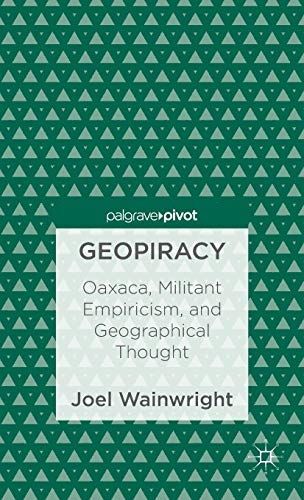
Geopiracy Oaxaca, Militant Empiricism, and Geographical Thought
Geopiracy delivers a critique of the 'Bowman expeditions'—a project through which geographers, with funding from the US Army, are mapping the 'human terrain' of foreign lands. Since the beginning of the controversy surrounding the Bowman expeditions, the discipline of geography has been rocked by debates concerning research methods, the military, and the effects of geospatial technologies on everyday life. Although the 'Oaxaca controversy' has fomented intense discussions, the questions it raises are far from resolved. Why have geographers remained so quiet about the resurgence of military funding for geographical research? Wainwright argues that the underlying problem stems from our epistemic commitment to empiricism. Much as some would like to deny it, many geographers are executing their own 'expeditions' in the spirit of Isaiah Bowman, the early 20th-century geographer who shaped the discipline's empiricist epistemology while helping the US to build its empire (and from whom the Expeditions take their name). Geopiracy is a critique of the disciplinary conditions of possibility of the Bowman expeditions and a critical analysis of the political economy of geographical research and the epistemological basis of contemporary fieldwork. In a word, Geopiracy offers a postcolonial critique of human geography today—one that draws on contemporary social theory to raise unsettling questions about the nature of geography's disciplinary formation.